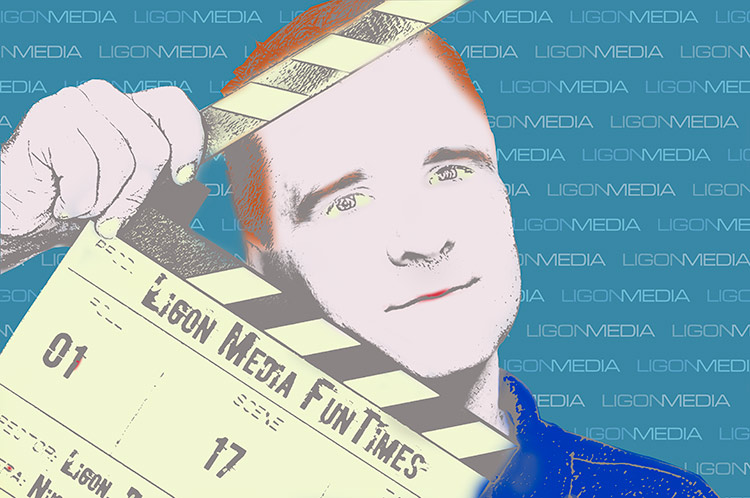I have a sign on my wall I wrote that simply reads: “If it’s not original, think harder.” So if I ever make this suggestion: “We should mimic those ‘the most interesting man in the world’ commercials – it’ll be good … and so funny.” You have my permission to slap me. The commercial will not be good nor funny, it will simply be bad. Really bad. I can’t stress enough how bad it will be. Because unless you are really talented — you cannot, will not, and should not try and pull it off. You will fail. Miserably. And then have to face the embarrassment of these commercials on TV.
Because I have seen way too many local commercials (and let’s be frank, late night national ones too) that are so terrible, I started a file on my computer entitled “God Awful Local Commercials.” I haven’t decided if I’m going to contact these companies to let them know just how bad their commercials are. I suspect they already know. Maybe not. I’m certainly not going to publically mention them here, although if you are familiar with local Sacramento TV commercials you might be able to figure out who I am referencing in some of my examples here.
Let me state I don’t mean every local commercial falls into this category. There are a lot of good ones, but there are those that just leave me shaking my head wondering how someone could’ve created this and actually charged money. And how a client could have approved the concept when presented with it.
In a nutshell the problem with most local commercials is the people who create them or want them, have local mindsets. They are not thinking hard enough. Instead of creating something original, they take the easy way out and either 1) try and recreate something someone else has already done; or 2) try and recreate something they have already done. Oh, wait, those are basically the same. That’s because too often original thinking gets hijacked by doing the quick and easy. I’m going to list some clichés and let’s see how many of them seem familiar.
10 LOCAL COMMERCIAL CLICHES TO AVOID
- Someone (or more often a group) thanks the company or product the commercial is about. (i.e. a commercial for “Dave’s Foot Odor Remover” has someone at the end say “Thanks Dave’s Foot Odor Remover!”).
- The owner’s child is in the commercial for absolutely no reason at all.
- There is a group shot of all the employees looking at the camera; half of whom probably don’t work there anymore.
- There’s a dog in it for no reason – and what’s worse, the dog is wearing sunglasses as dogs are wont to do.
- A pitchman or two in sunglasses are talking back and forth to the camera with mindless banter, because, you know, they’re cool. (sunglasses tend to be a theme).
- Four words: Hot Woman in Bikini … for absolutely no reason at all.
- Show product. Dissolve. Show product. Dissolve. Show product. Dissolve - while voiceover reads unmemorable copy about company who produces said products.
- The owner guarantees it … and we know he means it because he points to the camera when he says it.
- The person on camera is talking directly to the camera … but his or her site line is off to the side because that’s where the cue cards are. And of course, cue cards are needed because the person speaking isn’t an actor and has discovered after 50 takes that 10 words are too many to memorize.
- The commercial is about how wonderful the establishment is and yet, all the photos or video show it empty.
So how do these commercials get produced? My guess is because either a) someone makes films or has a camera and they think that automatically qualifies them to make a commercial; b) the commercial isn’t what’s important to the person producing it, selling the commercial or ad space is; c) they just don’t know any better or can’t do any better; or d) budget constraints cause people to take the easy way out.
Writing, producing, directing and editing commercials isn’t as easy as writing any script and then pointing the camera and pressing record. Creating commercials, good commercials consistently, takes talented people. People who are schooled in the art of persuasion, argumentation, psychology, consumer behavior and branding strategies. And yes, creativity. Because after all, you want your commercial to stand out against the thousands of other messages your audiences are inundated with.
In the future, I’ll write about the creative process and some tips on making better commercials. But for now, here’s the most important tip I can give you: If the person you are planning to hire to shoot your commercial never asks you this one basic question, do not hire them. The question: “who is your target audience?” You can’t create a commercial (or sales strategy, brochure, or anything else marketing related) without knowing this one answer. And if they mention doing any of the 10 clichés I wrote about above, say thank you, and seek creative help elsewhere. Unless of course it’s me; you should slap me first, then leave.
If you like, share. If you don’t like, don’t share. And if you’re indifferent, then share or don’t share, whatever.

